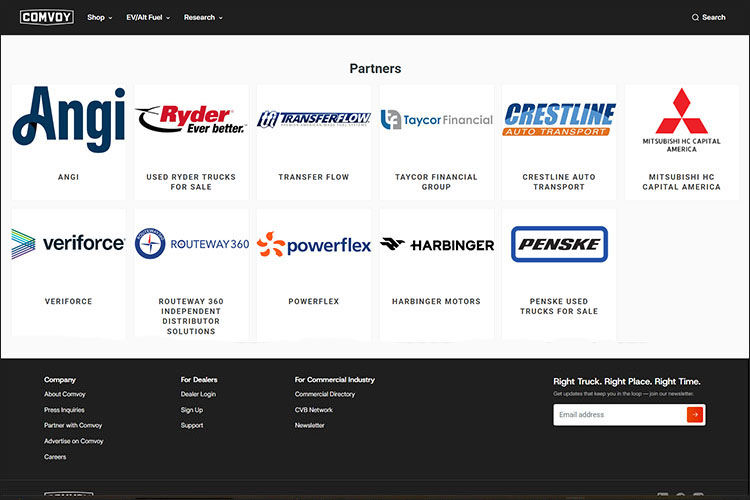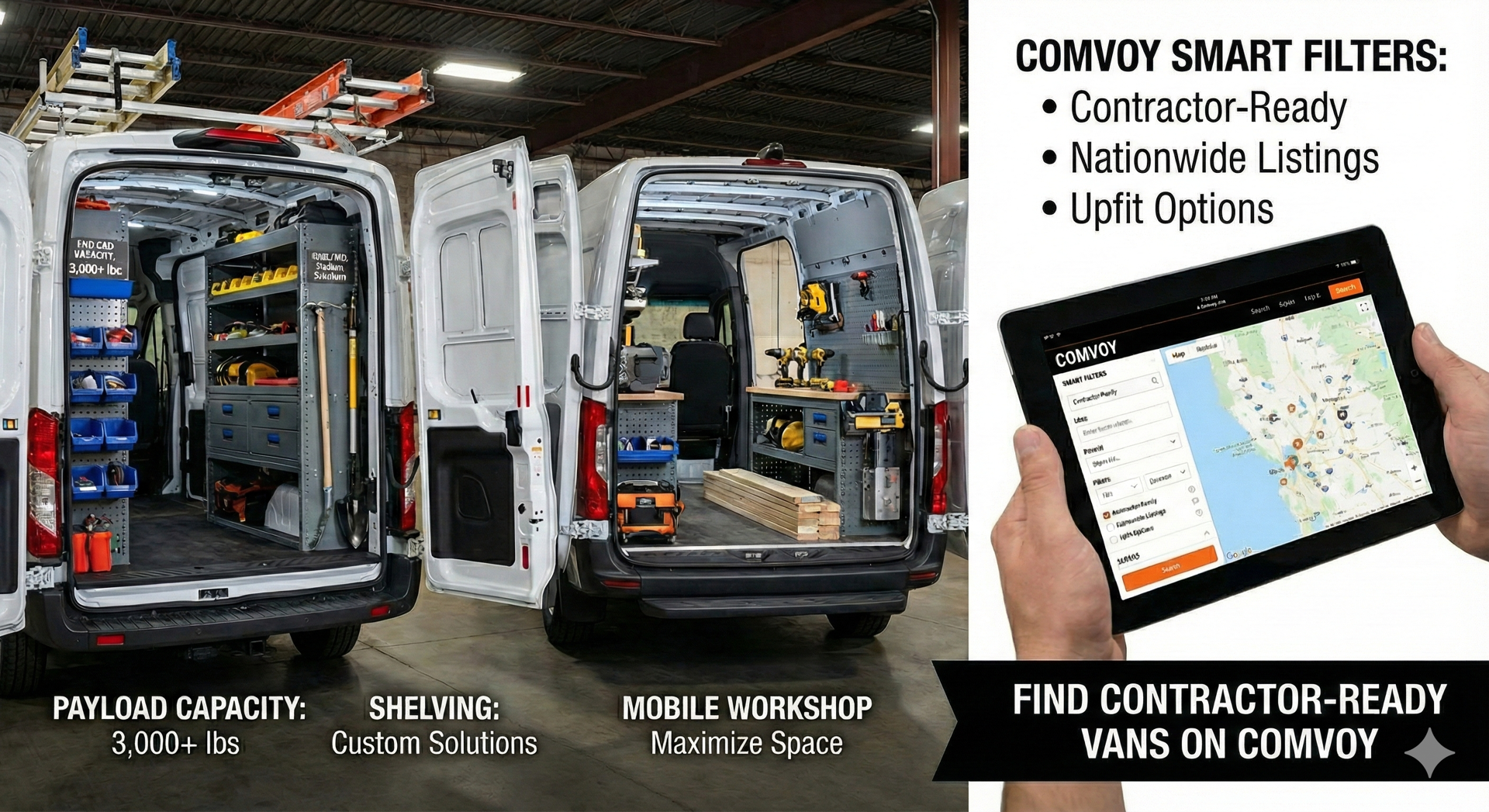Alternative Fuel for Commercial Vehicles: Not All Eyes Are On BEVs
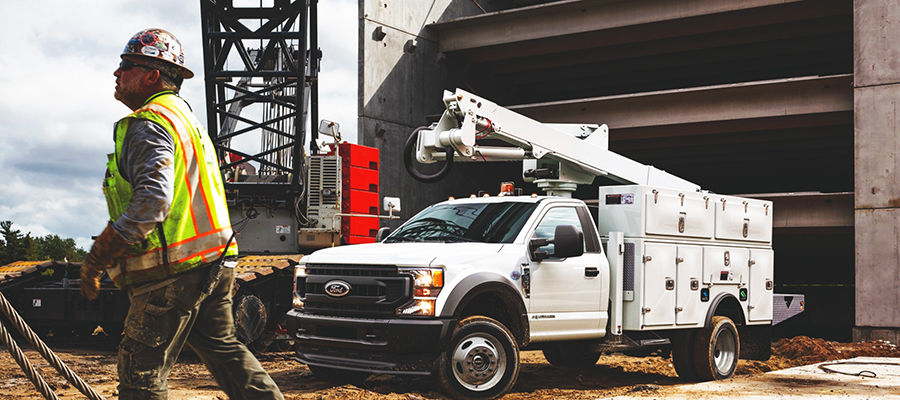

Alternative Fuel for Commercial Vehicles: Not All Eyes Are On BEVs
Electric vehicles (EV) are a common feature in the transportation news cycle. But it is mainly the battery-only electric vehicle (BEV) that dominates the conversation, and usually when someone says EV, what they are referring to is actually BEV. However, fuel cell electric vehicle (FCEV) technology is emerging as a serious contender in the commercial vehicle market.
Hydrogen fuel cell technology may seem futuristic, but vehicle manufacturers have been working on it since the 1960s when GM debuted the Electrovan, billed by many as the first hydrogen-powered car in the world. The first commercially produced hydrogen fuel cell automobile, the Hyundai ix35 FCEV, was introduced in 2013, the Toyota Mirai followed in 2015, and then Honda entered the market.
Though media coverage may be focused on consumer-level BEVs, several OEMs are ardently pursuing the development and testing FCEVs for commercial applications.
GM and Honda Hydrogen Fuel Cell Vehicles
In 2013, General Motors and Honda announced a long-term, definitive master agreement to co-develop fuel cell systems and hydrogen storage technologies. The venture was successful and birthed Fuel Cell System Manufacturing, LLC (FCSM) four years later.
GM and Honda seem to have taken alternate routes in deploying fuel cell tech as a product.
According to a 2023 article in Auto News China, “[Honda] has started working with local partner Dongfeng Motor Group Co. to test Honda’s fuel cell system in the state-owned automaker’s light commercial vehicles. Testing in central China’s Hubei province will verify the performance of vehicles fitted with Honda fuel cells across several metrics: adaptability to the environment, fuel economy, and durability under various driving conditions.”
On the other hand, GM is pursuing new commercial applications of its HYDROTEC fuel cell technology with an aggressive push into the charging station infrastructure.
Hyundai Hydrogen Fuel Cell Vehicles
In 2021, Hyundai Motor Co. started building a plant in the south China city of Guangzhou, with a capacity to build 6,500 fuel cell systems a year. Partnerships with Guangzhou Hengyun Enterprises Group Co. and Guangzhou Development District Transport Investment Group Co. will allow Hyundai to carry out sales and provide after-sale services for commercial vehicles installed with Hyundai’s fuel cell system.
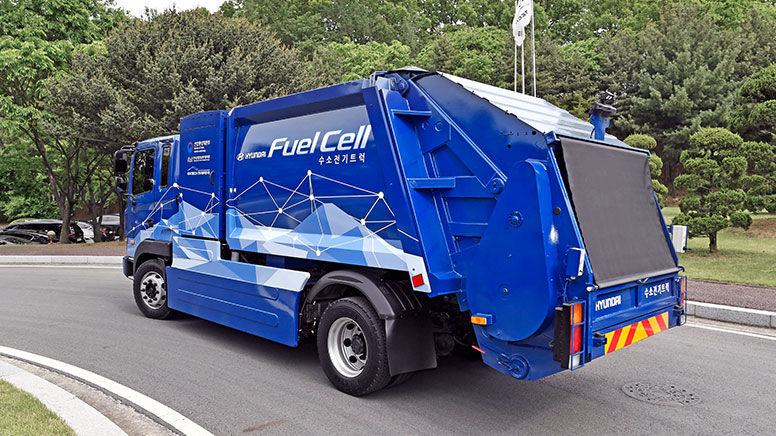
Toyota Hydrogen Fuel Cell Vehicles
In 2020, Toyota Motor Corp. formed an R&D partnership on fuel cell system development with Beijing-based fuel cell system developer SinoHytec Co., Dongfeng, and three other state-owned Chinese automakers, China FAW Group, GAC Motor Group, and BAIC Group. Then in 2021, Toyota set up an 8 billion Japanese yen ($624 million) joint venture with SinoHytec to produce and market fuel cell systems for commercial vehicles. Construction of a manufacturing plant in Beijing began in October 2022.
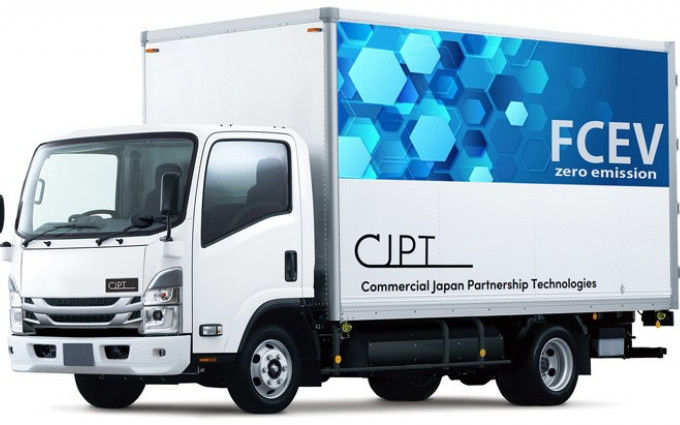
Ford Hydrogen Fuel Cell Vehicles
Ford is currently dipping its toe in the commercial-vehicle waters with an F-550 Super Duty prototype hydrogen fuel cell pickup trucks. The Super Duty prototype is being developed and tested in conjunction with SoCalGas as part of the U.S. Department of Energy’s (DOE) SuperTruck 3 program, which aims to reduce emissions in medium and heavy-duty trucks.
SoCalGas will test the Ford Super Duty model in real-world conditions to see how it holds up to the demands of utility work when it deploys in 2025, while the company will also be adding a temporary hydrogen refueling station at its Bakersfield, California location to keep the truck going.
Shop For FORD Electric Vehicles
Considering an FCEV for Your Next Purchase?
At first blush, the shining promise that hydrogen fuel cells emit only water vapor as the exhaust is fascinating. And knowing that hydrogen can be extracted from water is downright exhilarating. So, if mankind has known this and has been dallying with its automotive application for decades, why isn’t the world already running on hydrogen?
When considering company vehicle usage, some of the top concerns for business owners are the initial cost of purchase, cost of maintenance, cost of fuel, availability of fuel, and payload capacity. Aggressive legislation by government agencies to replace fossil fuel-burning vehicles has also become a major factor in what engine platforms will be available at all. Somewhere in the mix, environmental stewardship is taken into account. In this environment, the FCEV is being re-evaluated as a viable alternative.
There have been multiple successful test projects involving commercial FCEVs, and several countries are pursuing hydrogen fuel cells as one piece of their energy needs puzzle. FCEVs appear to be cost-comparative with diesel and CNG platforms in terms of the total cost of ownership and payload capacity[1], [2]. But, the fact is that at the time of this writing, FCEVs are still far behind BEVs in development, availability, and infrastructure. Especially in the U.S.
If you’re looking at vehicle replacement within the next ten years, it’s not likely to be with an FCEV. But given the vast amount of resources being spent to make hydrogen fuel cell tech commercially available, it is a foregone conclusion that FCEVs will be an option at some point in the future.
Published on: February 21, 2023

